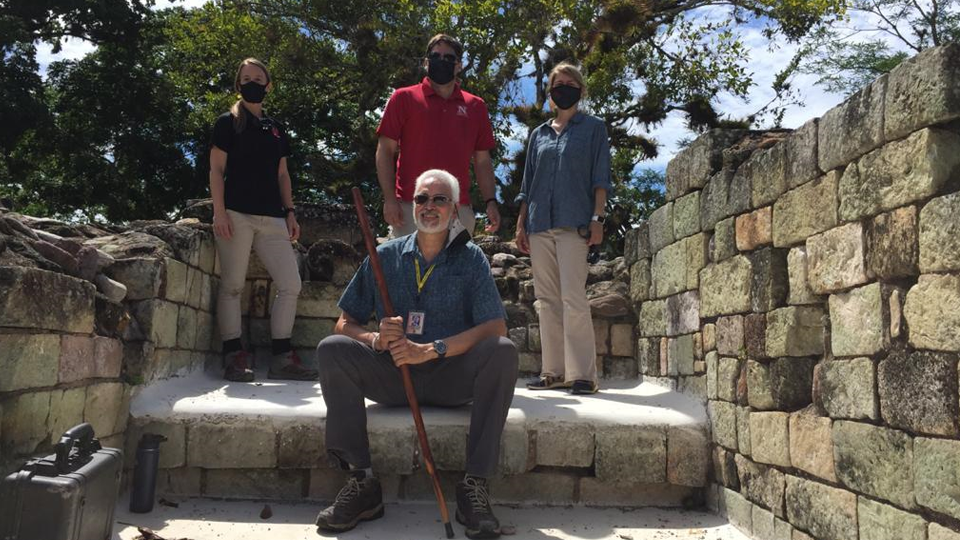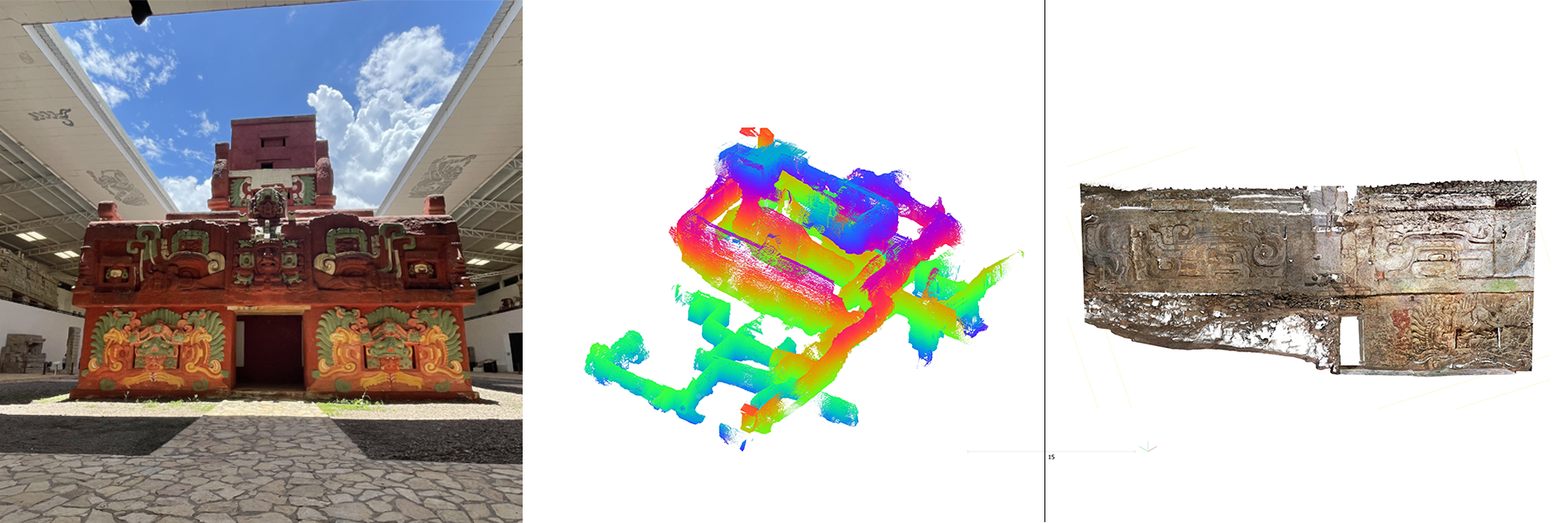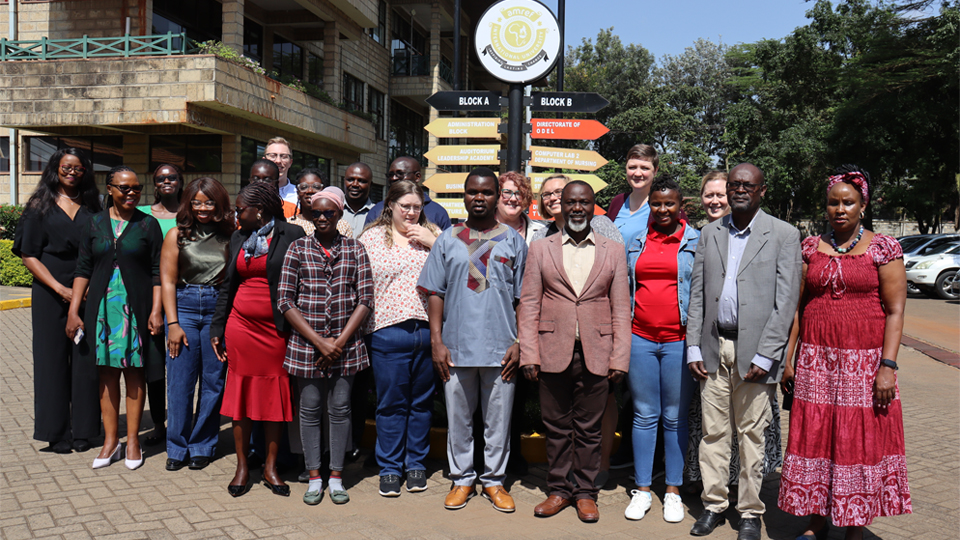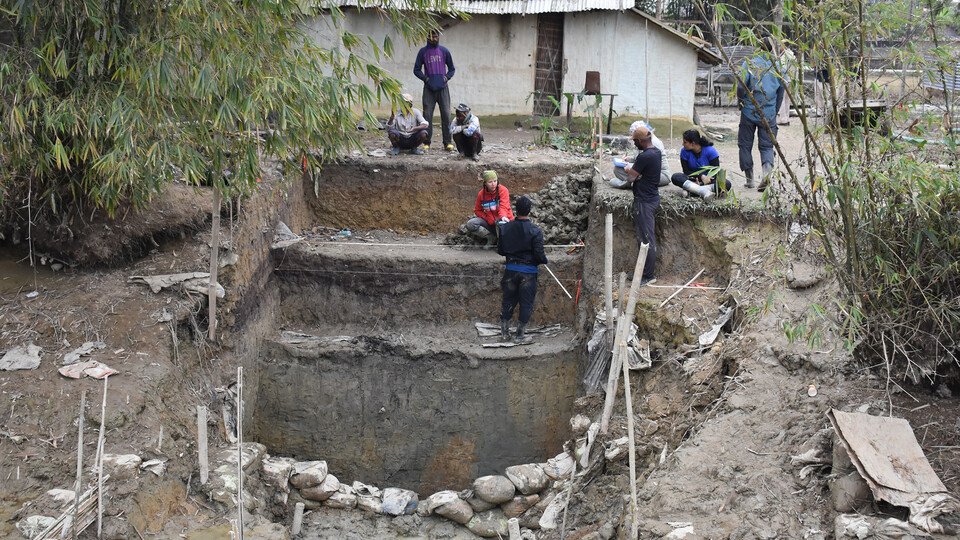
Christine Wittich, Richard Wood, and Heather Richards-Rissetto standing behind Ricardo Agurcia Fasquelle.
Rosalila is the best-preserved example of Early Classic monumental architecture found at Copan, an ancient Maya temple in Honduras, and throughout the Maya world. However, it is quickly deteriorating due to exposure to environmental stresses and complex loading.
Heather Richards-Rissetto, an anthropologist in the School of Global Integrative Studies, is collaborating on a new project with archaeologists and engineers to study its structural health, recommend mitigative actions, and better understand its significance within ancient Maya society.
Copan was one of the most important cultural and commercial centers of Maya society and is particularly well-known for its influential architectural achievements. Though most buildings were destroyed to create solid foundations for new buildings, Rosalila was preserved and carefully encased with a thick layer of white plaster before the Maya sealed it with a fill of mud and cobbles.

Images of Rosalila.
"Rosalila is one of the most important and unique ancient Maya temples for scientific inquiry," Richards-Rissetto said.
While structural engineers have previously studied historical structures, and archaeologists have previously studied Maya temples, this collaborative project is enabling interdisciplinary work in unique ways. For the structural assessment, a 3D finite element model will be created using three-dimensional geospatial point clouds.
The team includes Husker colleagues Richard Wood, the principal investigator, and Christine Wittich, a co-principal investigator, both from the Department of Civil and Environmental Engineering. Another team member, Elisandro Garza, is an international student visiting from Copan. He directs the fieldwork for the Rescuing Rosalila Project and is processing the data collected and providing the team with knowledge of the excavation tunnels.
Equipment being used in Rosalila.
The project will be used to bolster a proposal submission to the National Science Foundation Research Traineeship Program (NRT), which supports transformative graduate education for research-based degree programs in high-priority, interdisciplinary areas of science, technology, engineering, and mathematics (STEM).



